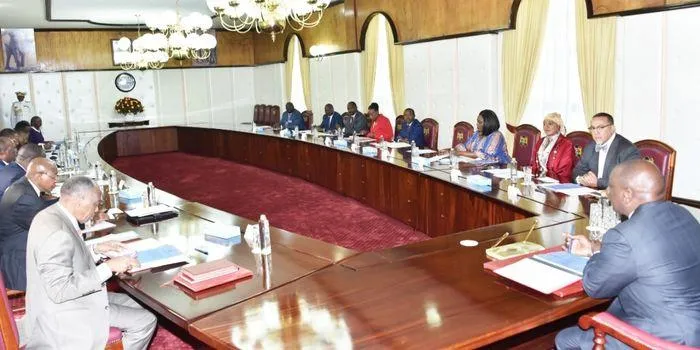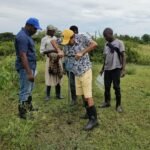By Murimi Gitari, October 3, 2022
President William Ruto has lifted the ban on Genetically Modified Crops (GMOs) after a cabinet meeting he chaired on Monday.
The lifting of the ban that was imposed in 2012, by dint of the executive action open cultivation and importation of White (GMO) Maize is now authorized.
In a statement released to newsrooms, the cabinet, in accordance with the recommendation of the Task Force to Review Matters Relating to Genetically Modified Foods and Food Safety, and in fidelity with the guidelines of the National Biosafety Authority on all applicable international treaties including the Cartagena Protocol on Biosafety (CPB), vacated its earlier decision of 8th November, 2012 which had prohibited the open cultivation of genetically modified crops and the importation of food crops and animal feeds produced through biotechnology innovations; effectively lifting the ban on Genetically Modified Crops.
The decision to lift the ban, follows an earlier Cabinet decision made on 19th December, 2019 regarding the commercialization of Bacillus Thuringiensis (BT) Cotton Hybrids in Kenya; which is a genetically enhanced variety of cotton that is resistant against African Bollworm, the most destructive and pervasive pest in cotton framing.
That earlier approval by Cabinet sought to revamp production of textiles, apparel, feed, and oil-industries towards the realization of the industrialization; and today’s Cabinet decision builds on it and also extends its benefits to other agricultural and manufacturing sectors.
The lift of the ban is part of the new administration’s medium to long term responses to the ongoing drought, and as a progressive step towards significantly redefining agriculture in Kenya by adopting crops that are resistant to pests and disease.
The decision was arrived at after reviewing and considering various expert and technical reports on adoption of biotechnology; including reports of the Kenya’s National Biosafety Authority (NBA), World Health Organization (WHO), the Food and Agriculture Organization (FAO), United States of America’s Food and Drug Administration (FDA), and the European Food Safety Authority (EFSA).
President Ruto had convened the cabinet meeting to consider the progress made in the national response to the ongoing drought situation that has affected 23 counties; together with an appraisal of the ongoing humanitarian support and relief food being provided to the families in those areas and the medium-term and long-term strategies being developed to address the food security situation in the country.
A broad array of proposals touching on climate change adaptation, reducing Kenya’s reliance on rain-fed agriculture by increasing irrigation, planting of diverse and drought resistant crops, and the implementation of early warning and response mechanisms that are activated at the very start of adverse situations rather than when the situations have escalated into disaster conditions were part of the cabinet’s considerations.







